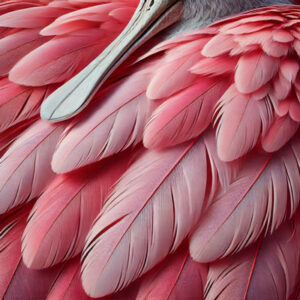 There’s a certain magic in the marshlands, and for me, that magic has always been embodied by the roseate spoonbill (Platalea ajaja). That vibrant pink, glowing like a sunset against the greens and blues of the Florida wetlands—it’s the kind of beauty that stops you in your tracks. I’ll never forget the first time I spotted one, sweeping its strange, spoon-shaped bill through the shallows.
There’s a certain magic in the marshlands, and for me, that magic has always been embodied by the roseate spoonbill (Platalea ajaja). That vibrant pink, glowing like a sunset against the greens and blues of the Florida wetlands—it’s the kind of beauty that stops you in your tracks. I’ll never forget the first time I spotted one, sweeping its strange, spoon-shaped bill through the shallows.

The roseate spoonbill has become my favorite Florida bird, not just for its striking pink feathers, but for the unique way it hunts—by touch, not sight. Unlike other wading birds that rely on sharp eyes to spot their prey, the spoonbill moves through the water almost blind to what lies beneath. Its long, spoon-shaped bill swings side to side in slow, steady arcs, feeling for the slightest flicker of movement. The moment something brushes against the sensitive edges of its bill—an unseen fish, a hidden crustacean—it snaps shut in an instant. Every motion is calm, deliberate, almost meditative—proof that in nature, sometimes feeling is more powerful than seeing.

That pink color? It comes from the carotenoids in the crustaceans they eat—just like flamingos. Younger spoonbills start out pale, their feathers a gentle blush, but as they grow and feast on their favorite meals, their plumage deepens into that iconic rose pink. Seeing one bathed in sunlight, its feathers glowing with shades of rose and coral, is like watching the marsh itself catch fire.

Spoonbills don’t like to be alone. They often travel with their wading bird friends—herons, egrets, ibises—and their colonies are lively, noisy places, especially during nesting season. I’ve always admired how they seem to understand the strength in numbers, finding safety and connection in the flock.

But there’s a quieter, more resilient side to the spoonbill’s story. In the past, these beautiful birds were hunted nearly to extinction for their feathers, prized for hats and fashion in the late 1800s. It’s heartbreaking to think about, but it makes me appreciate every encounter with them even more. Thanks to conservation efforts and protected wetlands, they’ve made a comeback, but their survival still depends on healthy, thriving habitats.

When I’m out exploring Florida’s estuaries, the roseate spoonbill always feels like a little gift from the wild—a reminder of why I love this state and its incredible ecosystems. It’s why I wrote Low-Tide Exploration in Florida, to capture moments like these and share the wonder with others.
If you ever find yourself in Florida’s wetlands, keep your eyes peeled. The roseate spoonbill may just glide into your view, pink feathers glowing and bill sweeping gracefully through the water. Trust me, it’s a sight you’ll never forget.
